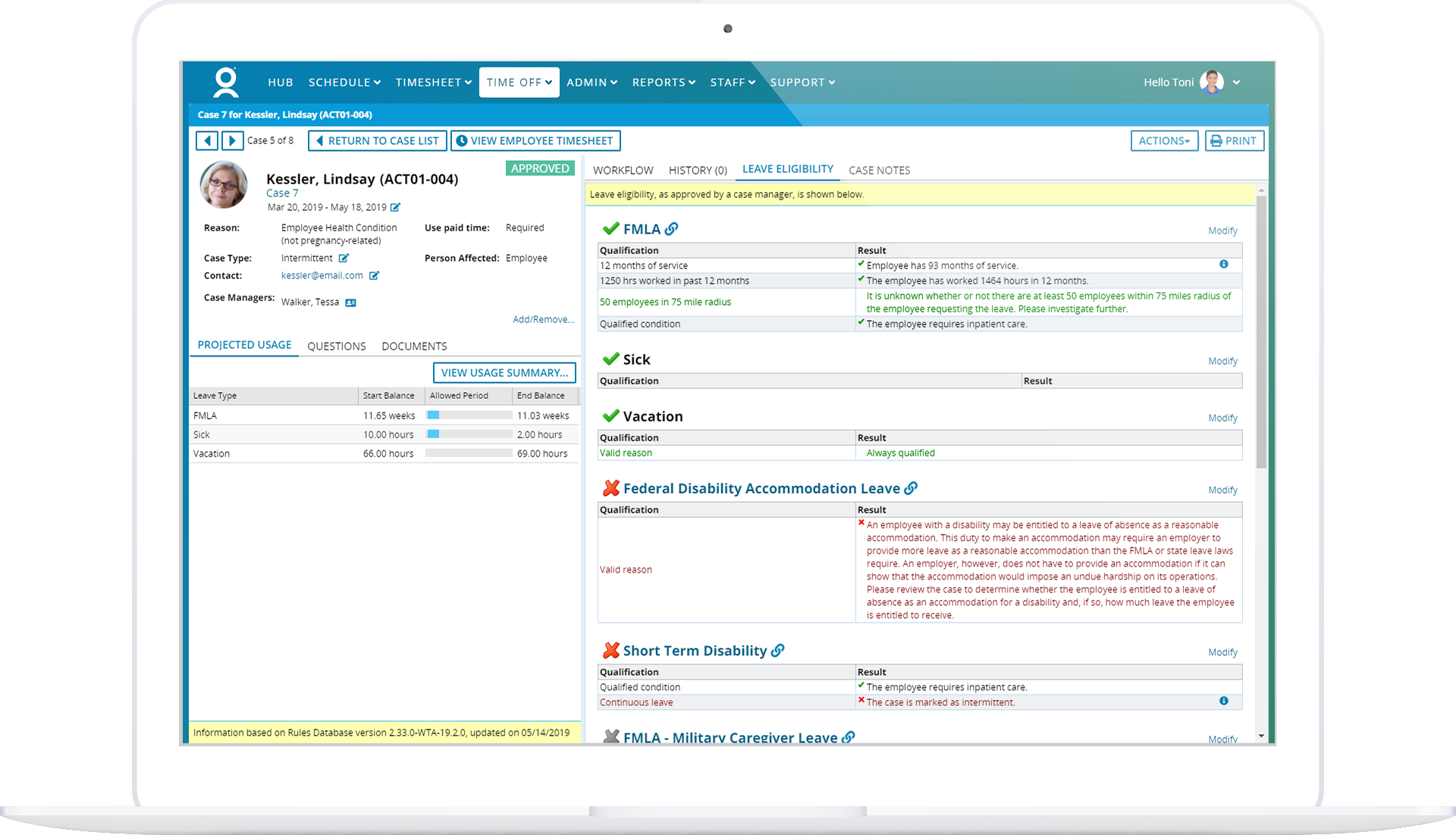Compliance Navigator
Crisis Leave Management During the COVID-19 Pandemic


Paul Kramer
Director of Compliance
Families First Coronavirus Response Act
Originally enacted on March 18, 2020, this federal law requires certain private and public employers to provide their workers with emergency paid sick leave or expanded family and medical leave for specified reasons related to COVID-19. The effective period of these two leaves is between April 1, 2020 and December 31, 2020.
Federal Family and Medical Leave Act (FMLA)
The FMLA grants up to 12 weeks of unpaid, job-protected leave to eligible employees with a serious health condition or who need to care for a covered family member with a serious health condition. A “serious health condition” is a physical or mental condition involving inpatient care or continuing treatment by a health care provider. Employees who contract coronavirus or whose covered family member contracts the disease will be FMLA eligible if inpatient care or continuing treatment is needed and all other eligibility requirements are met.
State and provincial family and medical leave laws
Many U.S. states and Canadian provinces have laws allowing employees to take time off for their own health condition, to care for family members with a serious health condition, or for a declared emergency. When it comes to taking leave to care for family members under these laws, the state and provincial laws commonly define “family member” broader than the FMLA, permitting employees to take leave to care for additional family members such as siblings, grandparents, and grandchildren.
Mandatory paid sick leave or PTO laws
Employees working in states, cities, or counties mandating paid sick leave or paid time off may be entitled to use this accrued leave for their own health reasons, to care for family members who contract COVID-19, or for school or day care closures. As with state family and medical leave laws, mandatory paid sick leave/PTO laws commonly define family members more expansively than the FMLA, allowing additional time off for employees.

Kin Care
Some places, such as California, have kin care laws that permit employees to use their personal sick leave or other accrued time off to care for an ill family member. Depending on the law, employees with family members suffering from COVID-19 may use some or all this time off to care for the family member.
American with Disabilities Act (ADA)
Employees with coronavirus may be considered disabled under the ADA or a comparable state law, contingent on the seriousness of the illness and if it affects a major life activity. If an employee is considered disabled by COVID-19 and requests a workplace accommodation, an employer must determine if the employee can be accommodated such as by taking a leave of absence, working from home, or other reasonable accommodation.
State leave expansions
Many states and Canadian provinces are passing or amending laws to protect employees who miss work due to COVID-19 or are issuing guidelines explaining how current regulations protect employees while absent.
Determine employee leave eligibility
When employees ask for time off related to the coronavirus outbreak, employers must first determine if they are eligible for a particular leave based on any service requirement needed for the leave or the reason the time off is requested. Employers also must determine whether the leave is unpaid or paid and if it is compensated, how much? Finally, any applicable leave laws should be closely scrutinized by the employer to see if employees can be required to use more than one leave simultaneously to reduce the burden of the time off. Remember, the COVID-19 crisis continues to evolve so employers must be watchful for new legal developments.
Subscribe to The WorkForce Blog
Learn the art and science of maintaining productive, happy, engaged employees.
Discover More
Nucleus Insights from WorkForce Customers Research Note
Nucleus Research interviews WorkForce customers who validate why we’re ranked the #1 WFM enterprise vendor for 10 consecutive years.
Elevate Employee Experience: Checklist for Operational Leaders
Get the practical steps and technology functionalities operation leaders need to improve their employees’ work experiences.
Streamlining Complex Workforce Compliance Requirements Boosts Productivity
Discover how workforce compliance software helps EMEA organisations navigate complex legislation, enhance compliance and boost operational efficiency.




